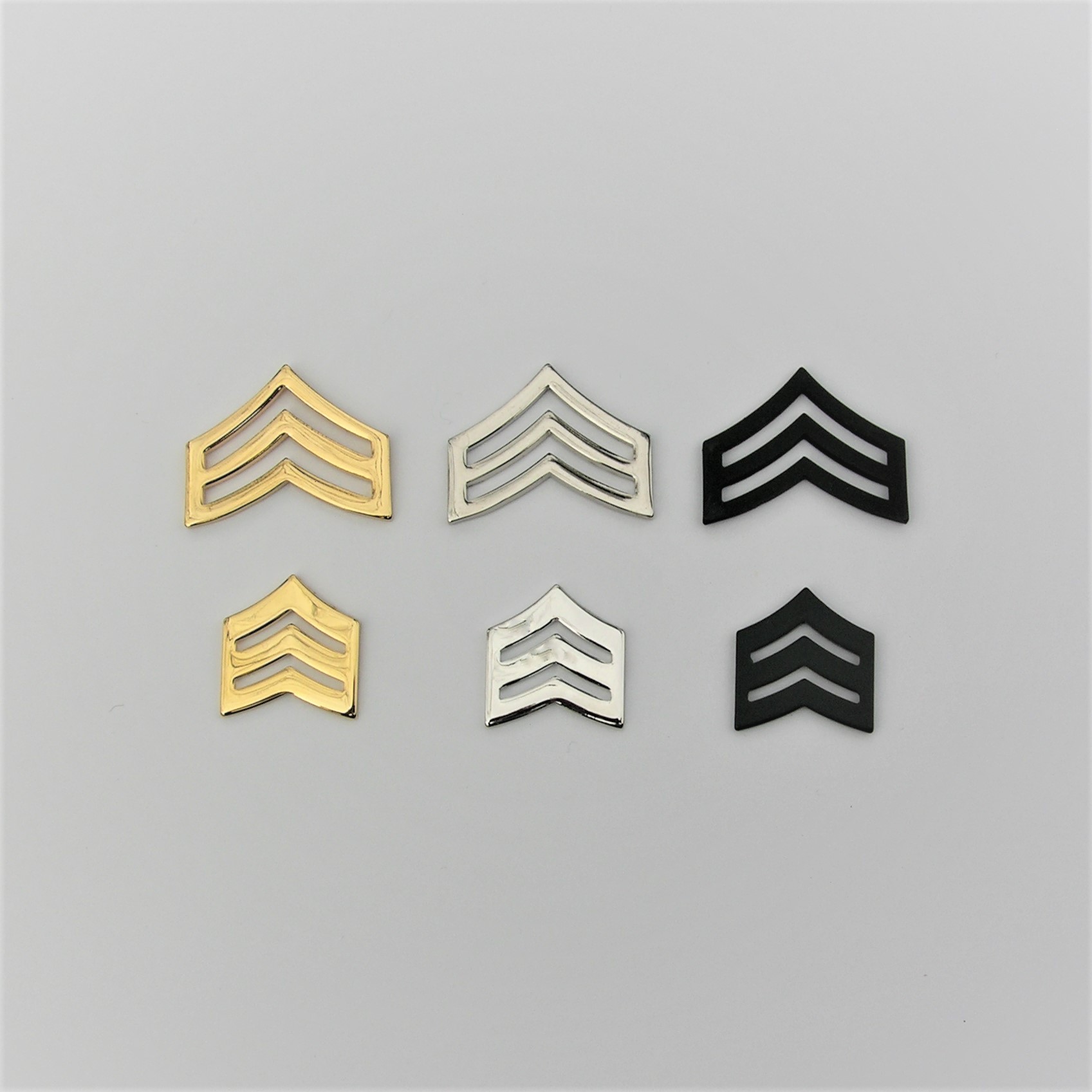In the world of military hierarchy, the role of a sergeant is both vital and multifaceted. A sergeant is not just a rank but a symbol of discipline, leadership, and responsibility. Whether you're exploring the history of this rank or its modern-day significance, understanding the role of a sergeant is crucial to appreciating the structure and success of military operations worldwide. From ancient armies to modern warfare, sergeants have consistently played a pivotal role in ensuring order, training soldiers, and executing strategic missions. This article delves deep into the essence of what it means to be a sergeant, exploring their duties, history, and influence on military and civilian life.
The keyword "sergeant" is deeply embedded in military culture, representing a bridge between enlisted personnel and officers. A sergeant's responsibilities often include training recruits, managing logistics, and leading small units in combat or non-combat scenarios. Their expertise and authority make them indispensable in maintaining the efficiency and morale of any military force. As we progress through this article, you'll discover the intricacies of a sergeant's role, their historical evolution, and their impact on modern society.
Understanding the life of a sergeant goes beyond military jargon. It involves appreciating their sacrifices, dedication, and the trust placed in them by their superiors and subordinates alike. This article is designed to provide comprehensive insights into the world of sergeants, ensuring that readers gain a well-rounded perspective. Whether you're a student, a military enthusiast, or someone considering a career in the armed forces, this article will serve as a valuable resource.
Read also:Securely Connect Remoteiot P2p Android A Comprehensive Guide
Table of Contents
- History of the Sergeant Rank
- Roles and Responsibilities of a Sergeant
- Training and Leadership Skills
- The Sergeant in Modern Military Operations
- Biography of a Notable Sergeant
- Impact of Sergeants on Civilian Life
- Statistics and Data on Sergeants
- Challenges Faced by Sergeants
- The Future of the Sergeant Role
- Conclusion
History of the Sergeant Rank
The rank of sergeant has a rich and storied history, dating back to medieval Europe. The term "sergeant" originates from the Latin word "serviens," meaning "servant" or "attendant." Initially, sergeants were tasked with maintaining order and enforcing laws within military camps. Over time, their roles evolved to include leading small groups of soldiers and serving as intermediaries between officers and enlisted personnel.
During the Middle Ages, sergeants became integral to the feudal system, often serving as personal guards to knights and nobles. Their duties expanded during the Renaissance, as armies grew in size and complexity. By the 18th and 19th centuries, the rank of sergeant had become a cornerstone of military organizations worldwide, with standardized roles and responsibilities.
In modern times, the sergeant rank continues to hold significant importance. Whether in the U.S. Army, British Armed Forces, or other global militaries, sergeants are recognized for their leadership and expertise. Their historical evolution reflects the changing nature of warfare and the increasing need for structured command hierarchies.
Roles and Responsibilities of a Sergeant
A sergeant's primary role is to act as a bridge between enlisted personnel and officers. They are responsible for training, mentoring, and leading soldiers under their command. This includes organizing drills, ensuring discipline, and maintaining the overall readiness of their unit.
One of the key responsibilities of a sergeant is to enforce military regulations and ensure compliance with orders. They are also tasked with managing logistics, such as distributing supplies and coordinating transportation. In combat situations, sergeants often lead small teams, making critical decisions that can impact the success of missions.
Outside of combat, sergeants play a crucial role in non-combat operations, such as humanitarian missions and disaster relief efforts. Their ability to adapt to various scenarios and lead with confidence makes them invaluable assets to any military organization.
Read also:Subhashree Sahu Viral Video Understanding The Controversy And Its Impact
Training and Leadership Skills
Becoming a sergeant requires rigorous training and a commitment to leadership. Military academies and training programs focus on developing skills such as decision-making, communication, and problem-solving. Sergeants are trained to handle high-pressure situations and inspire trust among their subordinates.
Leadership is at the core of a sergeant's duties. They must lead by example, demonstrating discipline, integrity, and professionalism. Effective sergeants are adept at motivating their teams and fostering a sense of camaraderie. They also play a key role in mentoring junior soldiers, helping them grow both personally and professionally.
Continuous education is another hallmark of a sergeant's career. Many pursue advanced courses and certifications to enhance their skills and advance in rank. This commitment to lifelong learning underscores the importance of expertise and authority in the sergeant role.
The Sergeant in Modern Military Operations
Combat Roles
In combat scenarios, sergeants are often the first line of leadership. They lead small units, coordinate tactical maneuvers, and ensure the safety of their soldiers. Their experience and training make them adept at assessing situations quickly and making informed decisions.
Non-Combat Roles
Beyond the battlefield, sergeants contribute to peacekeeping missions, humanitarian efforts, and disaster response operations. Their organizational skills and ability to manage resources are crucial in these non-combat roles. For example, sergeants may oversee the distribution of food and medical supplies during humanitarian crises.
Biography of a Notable Sergeant
One of the most celebrated sergeants in military history is Sergeant Alvin York of the U.S. Army. Known for his bravery during World War I, York single-handedly captured 132 German soldiers, earning him the Medal of Honor.
Personal Data and Biodata
| Full Name | Alvin Cullum York |
|---|---|
| Date of Birth | December 13, 1887 |
| Place of Birth | Pall Mall, Tennessee, USA |
| Rank | Sergeant |
| Awards | Medal of Honor, Distinguished Service Cross |
Impact of Sergeants on Civilian Life
The influence of sergeants extends beyond the military. Many veterans transition into civilian roles, bringing their leadership skills and discipline to various industries. Former sergeants often excel in fields such as law enforcement, education, and corporate management.
Sergeants also play a vital role in community service. Their training in teamwork and problem-solving makes them effective leaders in volunteer organizations and local initiatives. By sharing their experiences, they inspire others to pursue careers in public service.
Statistics and Data on Sergeants
According to recent data, there are over 100,000 active-duty sergeants in the U.S. military alone. This number highlights the critical role sergeants play in maintaining military readiness. Studies also show that units led by experienced sergeants tend to perform better in both training and combat scenarios.
Challenges Faced by Sergeants
Sergeants face numerous challenges, including long deployments, high-stress environments, and the responsibility of leading diverse teams. Balancing authority with empathy is another challenge, as they must maintain discipline while supporting the well-being of their soldiers.
The Future of the Sergeant Role
As technology advances, the role of sergeants is evolving. Modern militaries are incorporating artificial intelligence and robotics into operations, requiring sergeants to adapt to new tools and strategies. Despite these changes, the core values of leadership, discipline, and service remain unchanged.
Conclusion
In conclusion, the role of a sergeant is indispensable in both military and civilian contexts. Their leadership, expertise, and dedication make them the backbone of military operations. By understanding the history, responsibilities, and impact of sergeants, we gain a deeper appreciation for their contributions to society.
We encourage you to share your thoughts on this article in the comments section below. If you found this information valuable, please share it with others who may benefit. For more insights into military life and leadership, explore our other articles on this site.

